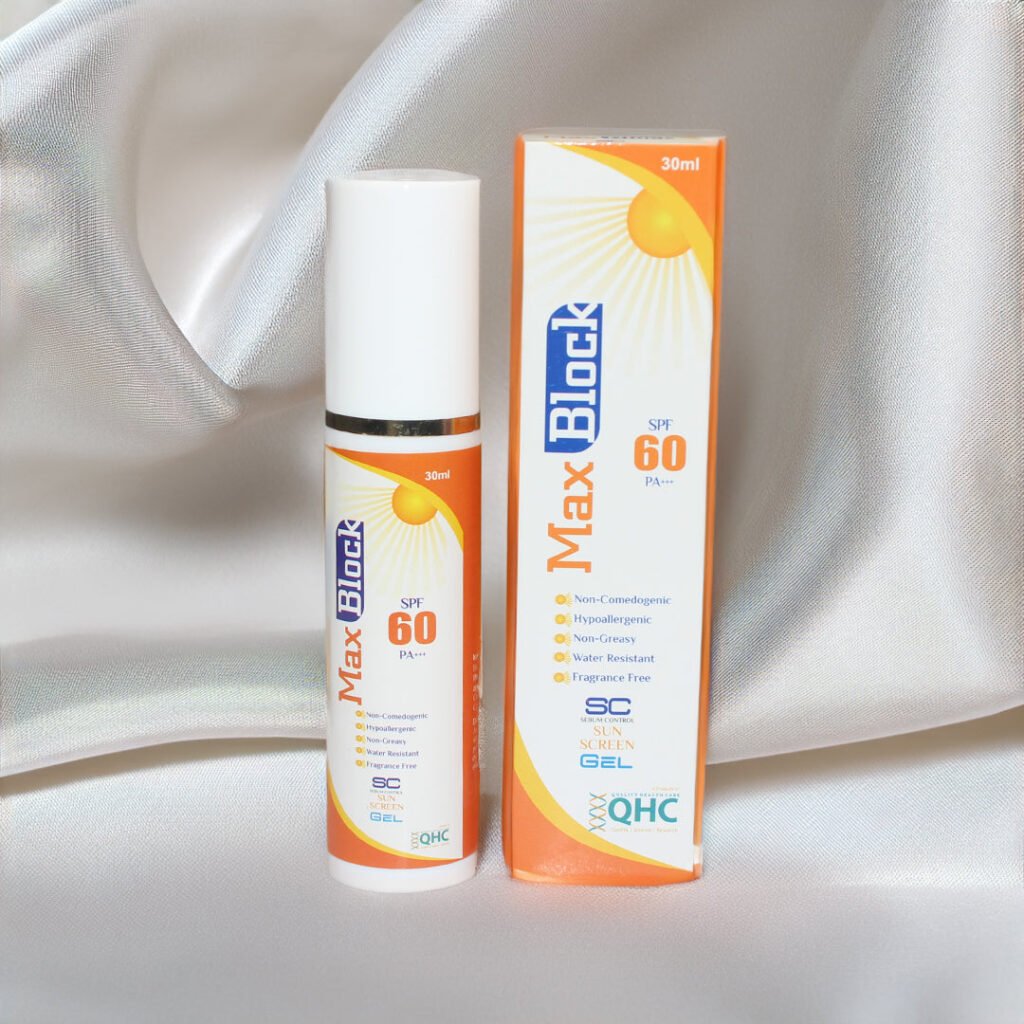Introduction to sunblock
Protecting your skin from the sun’s harmful rays is crucial, especially in a country like Pakistan where the sun can be intense. Sunblock is an essential part of any skincare routine. It helps prevent sunburn, skin damage, and even skin cancer. This guide will walk you through everything you need to know about choosing the best sunblock in Pakistan.
Why Is Sunblock Important?
Sunblock is a product that protects your skin from the sun’s ultraviolet (UV) rays. These rays can cause damage to your skin over time. Here’s why using sunblock is so important:
- Prevents Sunburn: Sunblock shields your skin from the sun’s harmful UVB rays, which cause sunburn.
- Reduces Skin Cancer Risk: Regular use of sunblock can lower your risk of skin cancer, particularly melanoma, which is the most serious type.
- Prevents Premature Aging: Sunblock helps protect against UVA rays, which can cause wrinkles and other signs of aging.
- Maintains Even Skin Tone: By protecting your skin from UV damage, sunblock helps prevent dark spots and uneven skin tone.
Understanding SPF: What Does It Mean?
SPF stands for Sun Protection Factor. It’s a measure of how well a sunblock will protect your skin from UVB rays, the kind of radiation that causes sunburn. The SPF number indicates how long it would take for your skin to burn if you weren’t wearing sunblock, compared to how long it would take with sunblock on.
- SPF 15: Blocks about 93% of UVB rays.
- SPF 30: Blocks about 97% of UVB rays.
- SPF 50: Blocks about 98% of UVB rays.
Higher SPF numbers provide more protection, but no sunblock can block 100% of UVB rays. It’s also important to remember that SPF only measures protection against UVB rays and not UVA rays, which also contribute to skin damage.
Types of Sunblock
Sunblock comes in various forms, and each type has its own benefits. Here are the most common types of sunblock you’ll find in Pakistan:
- Creams: Ideal for dry skin and for use on the face.
- Lotions: Lighter than creams, good for use on large areas of the body.
- Gels: Suitable for oily skin and areas with hair, like the scalp.
- Sprays: Easy to apply, great for hard-to-reach areas.
- Sticks: Convenient for touch-ups on small areas like the nose or ears.
Choosing the Right Sunblock for Your Skin Type
Different skin types require different kinds of sunblock. Here’s how to choose the best one for your skin type:
- For Oily Skin: Choose a non-comedogenic sunblock, which won’t clog pores. Gel-based sunblocks are often a good choice.
- For Dry Skin: Look for a sunblock with moisturizing properties. Creams or lotions with added hydration are ideal.
- For Sensitive Skin: Choose a sunblock with gentle ingredients, free from fragrances and preservatives. Mineral-based sunblocks with zinc oxide or titanium dioxide are good options.
- For Combination Skin: Opt for a sunblock that is neither too greasy nor too dry. A lightweight lotion might be the best choice.
How to Apply Sunblock Correctly
Applying sunblock correctly is just as important as choosing the right product. Here’s how to ensure you’re getting the most protection:
- Apply Generously: Use enough sunblock to cover all exposed skin. A general rule is to use about a teaspoon for your face and a shot glass amount for your body.
- Apply Early: Apply sunblock at least 15 to 30 minutes before going outside. This gives it time to form a protective layer on your skin.
- Reapply Often: Reapply sunblock every two hours, or immediately after swimming or sweating. Even water-resistant sunblocks need to be reapplied regularly.
- Don’t Forget Small Areas: Remember to apply sunblock to often-forgotten areas like your ears, neck, and the tops of your feet.
Common Myths About Sunblock
There are many misconceptions about sunblock that can lead to improper use. Let’s debunk some of the most common myths:
- Myth 1: You Don’t Need Sunblock on Cloudy Days: UV rays can penetrate clouds, so it’s important to wear sunblock even on overcast days.
- Myth 2: Dark Skin Doesn’t Need Sunblock: While darker skin has more melanin, which provides some protection, it’s still vulnerable to UV damage and should be protected with sunblock.
- Myth 3: Sunblock Provides Complete Protection: No sunblock can block 100% of UV rays. It’s also essential to wear protective clothing and seek shade during peak sun hours.
Tips for Maximizing Sun Protection
Using sunblock is a great start, but you can further protect your skin by following these additional tips:
- Wear Protective Clothing: Long sleeves, wide-brimmed hats, and sunglasses can provide additional protection against UV rays.
- Seek Shade: Avoid direct sunlight between 10 a.m. and 4 p.m., when the sun’s rays are strongest.
- Stay Hydrated: Drinking plenty of water helps keep your skin healthy and more resilient to sun exposure.
- Be Mindful of Reflected Sunlight: UV rays can reflect off surfaces like water, sand, and snow, so take extra care in these environments.
Choosing the Best Sunblock in Pakistan
When selecting the best sunblock in Pakistan, consider the following factors:
- Broad-Spectrum Protection: Choose a sunblock that offers broad-spectrum protection, meaning it protects against both UVA and UVB rays.
- Water Resistance: If you plan to swim or sweat, opt for a water-resistant sunblock.
- Skin-Friendly Ingredients: Look for sunblocks with skin-friendly ingredients that are free from harsh chemicals.
- SPF Level: Choose an SPF level appropriate for your skin type and sun exposure level.
Summary
Sun protection is essential for maintaining healthy skin, especially in a country like Pakistan where the sun can be harsh. Choosing the right sunblock is key to protecting your skin from harmful UV rays. By understanding your skin type, choosing the correct SPF, and applying sunblock properly, you can enjoy the outdoors while keeping your skin safe.
Remember, sunblock is just one part of a comprehensive sun protection strategy. Combine it with protective clothing, shade, and hydration to ensure your skin stays healthy and radiant.




